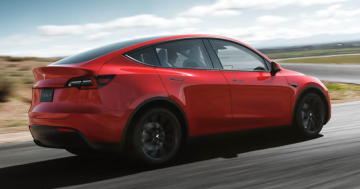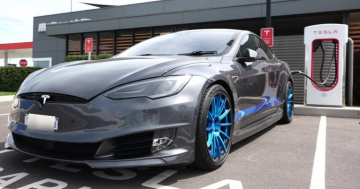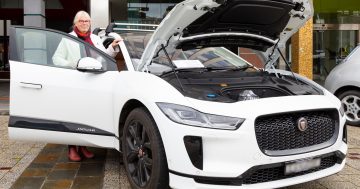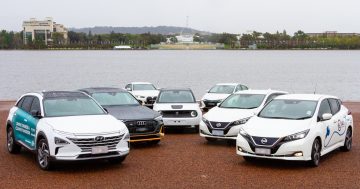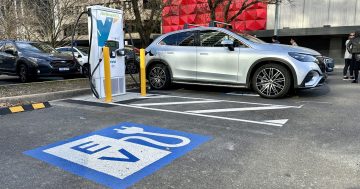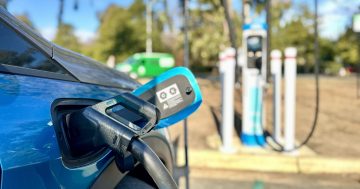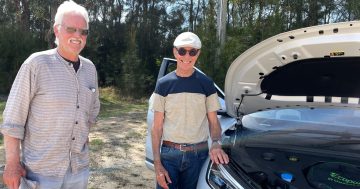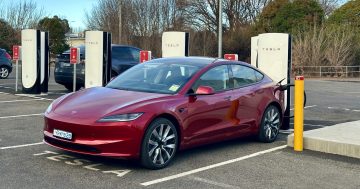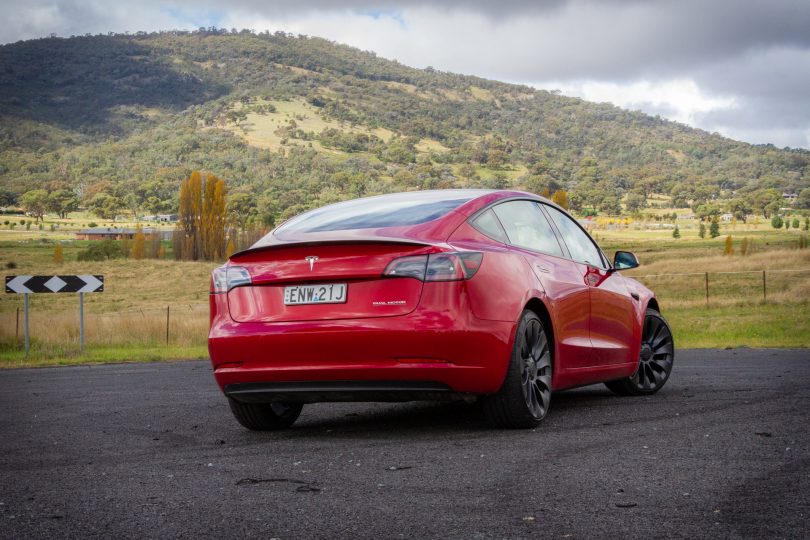
The Tesla Model 3. Tesla is the most popular EV brand in the ACT but is still out of the reach of many. Photo: James Coleman.
Going electric is the road ahead for Australian motorists. That much is clear.
Particularly here in the ACT, which leads the nation in electric vehicle take-up and where registrations doubled between November 2021 and November 2022, and 9.5 per cent of all new cars are EVs.
Nationally, EVs represented only 3.8 per cent of all new vehicle sales in 2022, well below the global average of 12 to 14 per cent.
But while many of us would love to own an EV, cost and a lack of supply remain barriers.
This is why the industry, motoring associations and enthusiasts welcomed the election of a Labor Government that would finally lift the roadblocks to Australia being able to drive into the future with adequate charging infrastructure and a diverse supply of EVs that would accelerate the transition away from the internal combustion engine.
Disappointingly, it has taken the Albanese Government nearly a year to deliver its Electric Vehicle Strategy, which points Australia in the right direction but doesn’t necessarily take us further than the previous laggards.
We will get new fuel emissions standards, which the industry says is crucial for car makers to send a proper range of new models here to provide greater choice, lower prices and develop a genuine market.
But despite nine years in opposition and a round of consultation on the Strategy, Labor will again talk to stakeholders before designing the standard it will legislate on, hopefully before the end of the year.
Australia has been an outlier on emissions standards and it remains unclear just how robust they will be, compared with the Europeans and the new US scheme which aims for EVs to be about two-thirds of new car sales in 2032.
Anything less will be seen as caving in to special interests that probably have been laying down a few speed bumps to delay change as much as possible.
The government has also been rightly criticised for not setting any targets for EV take-up, and there will be no new incentives to buy EVs, instead promising to work with states and territories for “nationally consistent principles to guide further incentives to support sustained demand across the nation over time”.
There will be no advance on already announced initiatives such as tax cuts and plans for a national charging network, and the strategy does not address trucks or heavy commercial vehicles.
So while we are supposed to accept the urgency of reducing greenhouse emissions to avert climate catastrophe, the government seems content to amble towards a transition that will be of immense importance, given transport is Australia’s third-largest – and fastest-growing – source of emissions and cars produce about half of these.
Whenever you read that a strategy “sets a vision”, it can only raise doubts about its commitment.
In contrast, the EU will ban the sale of internal combustion engine cars from 2035, although some combustion engines running on e-fuels can be sold beyond 2035.
Climate Change and Energy Minister Chris Bowen says the strategy will “provide greater choice for Australians to drive cars that are cleaner and cheaper to run”.
“In other countries, there’s a much bigger range of electric vehicles available for people,” he said.
“We want people of all walks of life, regardless of their income, to have the chance to consider buying an electric vehicle.”
The government needs to do more to live up to its own rhetoric.
It cannot rely on simply adjusting settings and hoping the market responds. It will require policy interventions, particularly if carmakers continue to focus on luxury models instead of turning to cheaper, mass-produced vehicles that will be within reach of average consumers.
Without clear targets for EV take-up and a transition timeline, Australian motorists wanting to make the switch will continue to be frustrated and the emission cuts we need to make will continue to fall short.












